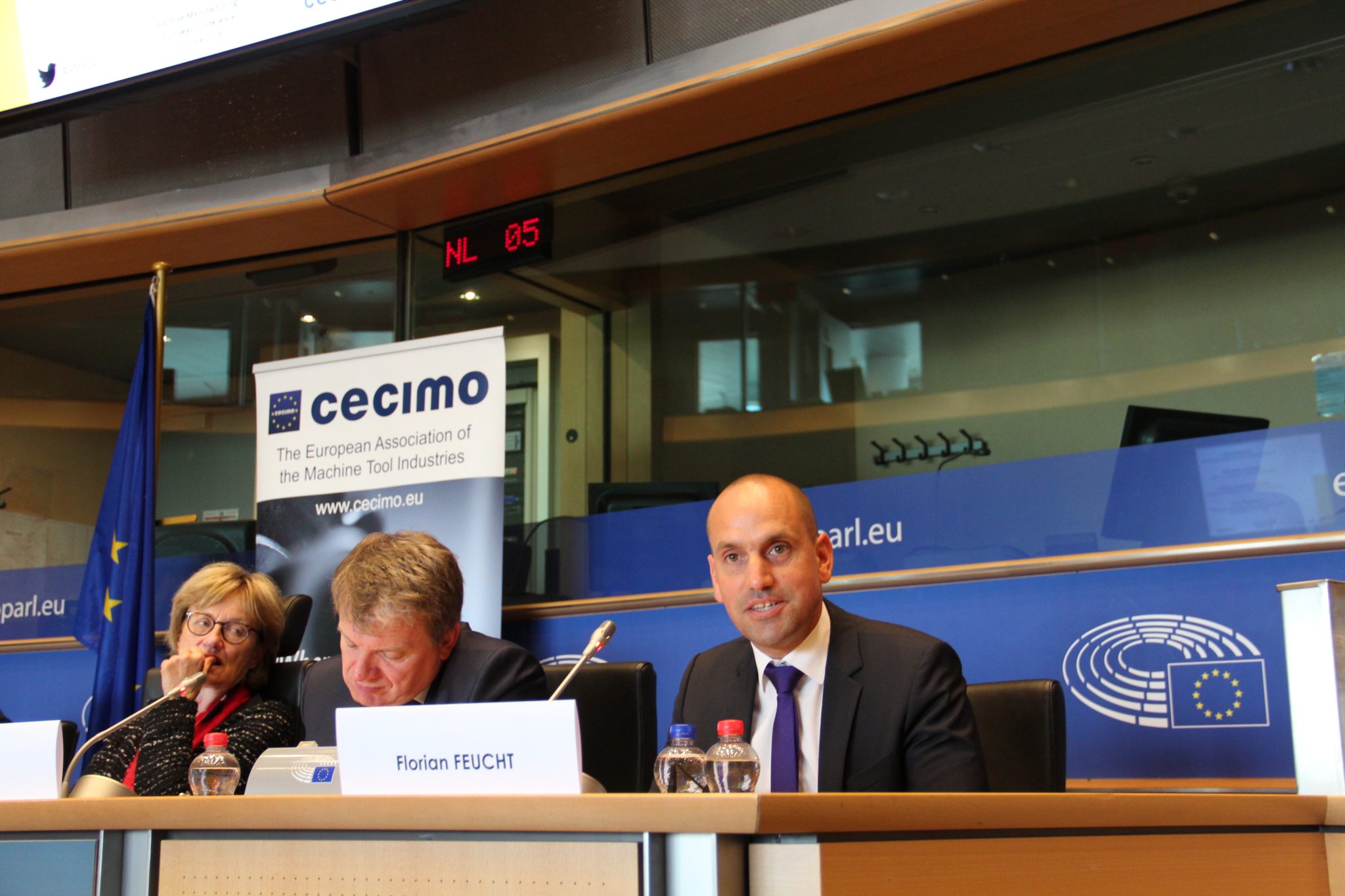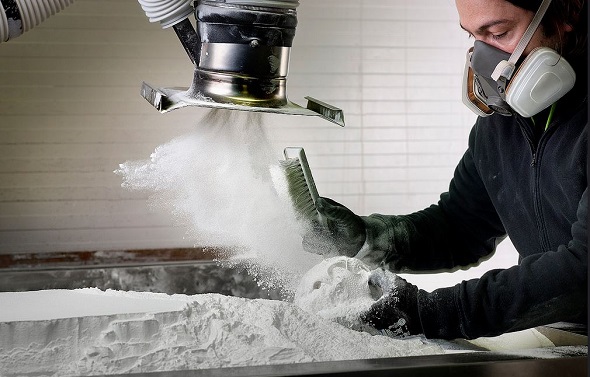Last week, CECIMO, the European Association of the Machine Tool Industries, organized and co-hosted the 4th edition of The Additive Manufacturing European Conference (AMEC) in Brussels, Belgium, which gathered EU institutions and policy-makers to discuss measures to expand the landscape of industrial additive manufacturing.
Following the AMEC, additive manufacturing professionals and Members of the European Parliament (MEPs) committed to spear-heading larger R&D projects and standardizations as well as applying caution for legislation to encourage technologies in the growing sector of additive manufacturing.

Embracing 3D innovations
Earlier this year, CECIMO, announced a new partnership with the European Powder Metallurgy Association (EPMA) to promote the adoption of powder-based 3D printing practices throughout established manufacturing industries.
Despite the variety of existing 3D printing systems available to manufacturers, there are growing developments and innovations in 3D printed parts and processes that must follow specific protocol before entering the marketplace.
Taking this into consideration, Stewart Lane, the General Manager of the UK Sales Division at Renishaw and Chair of the CECIMO Additive Manufacturing Working Group, urged policymakers during the AMEC to foster a conducive environment for the progression of new technologies within 3D printing.
“It’s important to apply caution in introducing legislation in a growing sector like additive manufacturing. We need to keep supportive framework conditions.”
Dita Charanzová, MEP, also presented methods for standardization within the EU to embrace additive manufacturing technologies. “Designing solid Europe-wide standards first, and seeking their successful international adoption later, would go a long way to help European industry in moving towards new additive production methods.”
As one example, powder handling of 3D printer feedstock recently received safety certification details from UK consultancy firm UL.

Closing the additive manufacturing skill gap
Not wanting to hinder innovations within additive manufacturing, Ivan Stefanec, MEP, emphasized the importance of supporting small and medium-sized enterprises (SMEs) in the adoption of new manufacturing additive manufacturing technologies.
Stefanec also highlighted the role of Horizon 2020, the EU’s framework programme for Research and Innovation, which has also funded a number of 3D printing projects including one for more sustainable 3D printer materials for the automotive market.
“Estimates say 3D printing may have an impact of up to $550 billion a year by 2025. I do believe it is very important the EU supports industry’s research activities,” say Stefanec.
Contributing to the proposition of research incentives, Charanzová suggested that creating new educational programs to develop qualified workers within additive manufacturing. This is important as creating a relevant workforce, would not only meet the demand for skilled labour, but encourage further growth within the industry.
‘’We will need to start wholly new educational programmes to create the relevant workforce,’’ stated Charanzová.
The AMEC was moderated by Frits Feenstra, Senior Project Manager of TNO, an independent research organization in the Netherlands and Benjamin Denayer, Change Manager of Sirris, a non-profit scientific organization in Belgium.
The CECIMO strategy
Earlier this year, CECIMO published its Activities Report which detailed the projects and initiatives executed for the overall advocacy of additive manufacturing within the EU.
This report details the plans to push inclusive additive manufacturing Machinery Legislation in the EU; proposed counter acts on the undue restrictions of EU Ecodesign and energy labeling rules; and progress reports on R&D collaborative projects, in particular, the AM-Motion Project which identifies “the barriers for industrialization of AM in Europe.”
Prior to this, CECIMO also published a document entitled “European Additive Manufacturing Strategy” to recognize various policy fields that require priority to increase the development of additive manufacturing.
This document outlines CECIMO’s achievements in abolishing machine tool design requirements for additive manufacturing set by the European Commission and CECIMO’s work in establishing health and safety requirements for AM machinery.
Keep up with the CECIMO’s progress to advance additive manufacturing by subscribing to the 3D Printing Industry newsletter. Also, follow us on Twitter, and like us on Facebook.
Looking for a change of pace or seeking new talent? Search and post 3D Printing Jobs for opportunities and new talent across engineering, marketing, sales and more.
Featured image shows Florian Feucht, Head of Additive Manufacturing Application and Sales at DMG MORI/Realizer leading discussions at the AMEC. Photo via CECIMO.

